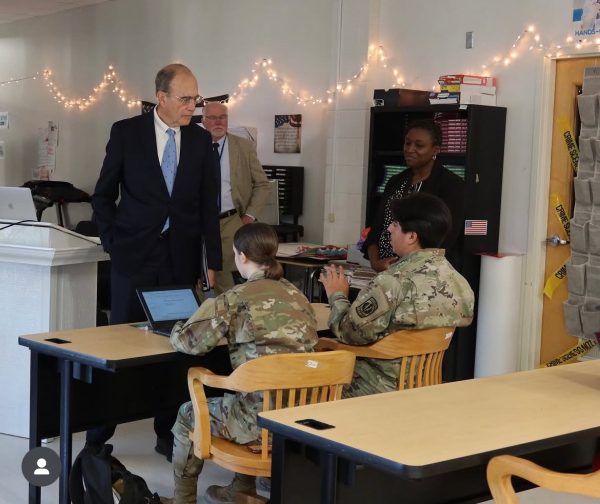Saving the Planet: how our school and community are working for the environment.
What is Climate Change?
Saving the Planet: how our school and community are working for the environment.
Talk of a climate crisis seems to be everywhere in the media now, but just how serious is it?
It has been one of the main points of the democratic primary debates, and 97% of Climatologists support the idea of climate change.
Climate change is so serious that much of the country of Australia, roughly the size of America, was ablaze with approximately 800 wildfires during the months of December and January. 24 people were arrested for Arson for setting the fires. Many experts say that the main contributor to the extent of the fires, the lack of ability to control them and the damage to the environment and wildlife is climate issues.
The Australian fires killed and injured an estimated 480 million wildlife and is estimated to have affected well over a billion animals all told.
It is also responsible for killing at least 25 people. The largest of the fires is three times larger than the largest fires in the California fires that ravaged the state last year.
What is climate change exactly?
Climate change is formally known as a change from traditional climate. Contrary to popular belief, Climate change is not a bad thing. In fact, climate change has happened throughout history. The Ice Age is one example of climate change. What makes it seem bad now is that it’s happening so quickly.
“The climate crisis is a very hot topic among environmentalists and politicians these days. Simply put, it is the long-term rise in the average temperatures on earth, primarily due to carbon emissions.” Environmental Science teacher Laurie Bishop said.
“The EPA predicts that Mississippi is a southern state that will experience the worst effects of climate change.” Bishop said. “Like the rest of the South, it is predicted to grow warmer in the next few decades, and both floods and droughts may be more severe.”
What is causing the global temperatures to rise more rapidly and causing the severe and unpredictable weather patterns?
Experts say that the cause is mostly due to an increase in our carbon emissions.
The United States Environmental Protection Agency has reported that transportation is the largest contributor to greenhouse gas (carbon) emissions.
Electricity is another major contributor to greenhouse gas (carbon) emissions.
“…I see our current and upcoming issues within a wider scope. Consumerism (buying things, especially things we don’t need) is the biggest challenge to our current society and is absolutely negatively affecting the environment and contributing to our carbon emissions.” Bishop said. “The carbon footprint (carbon produced by the activities of an individual, company, country, etc.) of Americans is higher than ever.”
What can we do to reduce our carbon footprint to help the climate?
“Going green” is one way which may seem hard but in reality there are very easy ways to do it.
“Being green is easy! There are so many ways to reduce your carbon footprint…stop buying plastic water bottles and purchase a reusable one, carpool as much as possible, buy foods with minimal packaging, participate in ‘Meatless Mondays’, find ways to repurpose items, or use an item for its full lifetime before replacing it.” Bishop said.
As far as carbon emissions there is not much we can do locally. In order for change to happen in the amount of CO2 that is being released in our environment, citizens would need to write to their Governor, Senator, or Representative about changing the emission regulations.
“Those are not even on state level, most of [the emission regulations are] regulated at the federal level.” Shelton said.
So the number one contributor to the change in this issue is the federal government.
“There’s no debating it. It’s science it’s not a matter of opinion. It’s the entire global scientific community that researches and studies these issues as it’s happening,” Tupelo Mayor Jason Shelton said.
Your donation will support the student journalists of Tupelo High School. Your contribution will allow us to purchase equipment and cover our annual website hosting costs.












